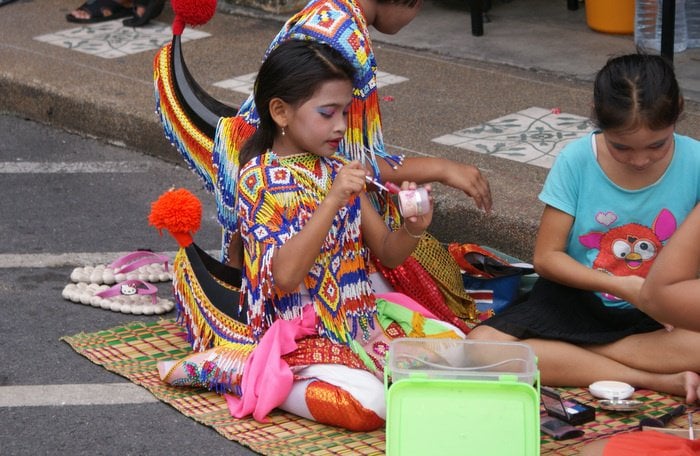Heritage tourism on Phuket

PHUKET: While Phuket has become a leading mass tourism destination and Thailand’s second market after Bangkok, travel specialists and local businesses are digging deep into the island’s rich culture and history to satisfy a growing demand from high-end visitors seeking immersive experiences on the island.
The local Baba culture provides one such source of inspiration for those wanting to venture beyond the confines of the luxury resorts and spas. Straits Chinese, locally known as “Baba” or “Peranakan” settled in Phuket in the 19th century, drawn by opportunities in the island’s then fledgling tin mining industry.
Pranee Sakulpipatana, vice president of the Thai Peranakan Association, whose family has lived in Phuket for 150 years, says when she was a child, 99 per cent of the 65,000 people living in the town were Baba. Since then, the urban population has grown to 350,000, significantly diluting the community.
However, Pranee says the influx of residents from around the country and the millions of tourists who visit the island each year are nothing to be afraid of. “We have a strong culture, and I tell locals we can use that to show people what Phuket is all about. The success of the annual Phuket Old Town festival [which follows Chinese New Year] shows the strength of Peranakan culture.”
For the past decade Pranee has also been reviving the Baba wedding tradition.
What started as an initiative to help the island lure back tourists after the 2004 Asian tsunami, has grown into a regular fixture on the local calendar. Back then, the Ministry of Culture was desperate to help the local tourism industry recover.
“Phuket was facing a crisis,” she says. “The ministry asked us if there was anything we could do to help. I had seen a wedding where a few couples had their photos taken in front of the Thai Hua School [a Sino-Portuguese building that formerly housed the first Chinese-language school on the island but is now a museum]. I thought that was something we could work with.”
Phuket held its first Baba wedding festival on October 23, 2005. Forty eight couples joined the celebrations – a significant number given it was the year 2548 in Buddhist Era – which are hosted in local historic buildings and feature a tea ceremony, various rites and rituals specific to the Baba culture, traditional dress and plenty of local cuisine.
“It took a lot of energy, but I turned my abstract dream into a reality,” says Pranee. “I am proud to show our culture and give back to Phuket.”
The festival, which has grown in popularity ever since, was held on June 20 this year.
Blue Elephant Cooking School and Tourism Authority of Thailand supported the event, which now targets high-end wedding planners from as far afield as India, Korea, China, Japan, Australia and Germany. The event cost about 40,000 baht per couple, including two nights accommodation.
Travel specialists agree that Phuket’s unique history and culture can be used to market the destination with wealthy visitors. Khiri Group has developed its ‘Cultural Walk’ to provide small groups with a chance to explore Old Town at street level.
“The walk is all about learning the local lifestyle,” says Andre van der Marck, the company’s vice president. “So we visit a local shrine and pay respect to the spirits, then visit the ‘oldest herb shop’ in town and learn about traditional medicine.
“We also explore historic Chinese shop houses in the beautiful streets of Thalang and Soi Romanee, and visit old-style barbers. Food has to be present too, so we will try the Muslim influenced roti, and some Chinese food that was brought here by Hokkien immigrants in the 19th century.”
Hans van den Born, managing director of Diethelm Travel Thailand, agrees that Peranakan culture, Sino-Portuguese architecture and the mansions of former tin barons, as well as visits to local fishing villages can all feature in itineraries for luxury groups.
“We run a number of half-day and full-day tours for small groups, all of which can be customized. These are especially popular with people who have been to Phuket before and want to see another side to life on the island.
“Certainly more can be done to promote cultural tourism in Phuket, but the more awareness there is, the more it will be developed.”
Jules Kay is a marketing consultant, editor and content curator with 15 years experience working in the Southeast Asian luxury property, lifestyle and tourism sectors. His latest project is an exclusive mixed-use residential resort development on Kamala Beach (www.montazure.com).
— Jules Kay
Latest Thailand News
Follow The Thaiger on Google News:


























